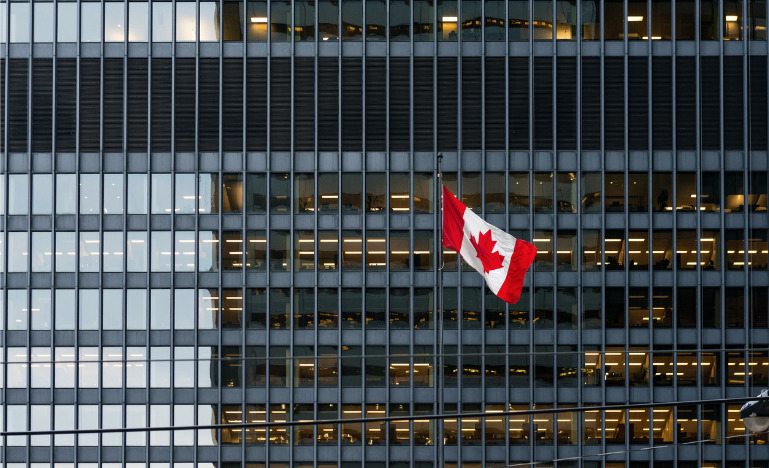National security reviews in pandemic times
Transactions with foreign entities may come with added scrutiny.

Foreign direct investment will be a central part of Canada's pathway to recovery from COVID-19, but increased scrutiny under the Investment Canada Act means deals may come under greater national security review and take longer in today's virtual business environment.
It has been an "interesting and difficult time" for competition and foreign investment lawyers advising clients since the federal government issued a notice indicating there would be increased scrutiny during the pandemic on deals involving foreign investors.
In its April policy statement, the federal government noted that the pandemic had caused declines in valuations, which could lead to opportunistic investment behaviour and be viewed as a national security concern. It states the government will scrutinize with particular attention under the Investment Canada Act any foreign direct investments of any value, controlling or non-controlling, in Canadian businesses related to public health or involved in the supply of critical goods and services to Canadians or the government.
"The objective of the increased scrutiny is to make sure that Canadian corporations and businesses that are in distress because of Covid-19 are not made targets of those not acting on an entirely commercial basis," said Andrew House, counsel and co-leader national security at Fasken.
House was speaking as part of the CBA Competition Law Fall symposium in a session entitled: National Security Reviews of Foreign Investments: Where do we stand and where are we going?
He says the increased focus has meant greater management of deal-making expectations with clients.
"A national security investigation does not happen overnight, and it certainly doesn't happen overnight when people are working remotely," said House. "The casual conversations that are part of the process don't happen anymore, including in the international setting because people are distancing all around the world — this accounts for the added timelines the government needs."
"To sit virtually in front of a CEO and say it used to be 200 days and now it's now potentially going to be 260 days — the look of shock that comes over someone's face is an unpleasant situation, and there is the real need to talk deal proponents through why these things are happening."
The potential for delays related to comprehensive reviews may put potential deals at risk as investors become nervous, waiting for the government's decision.
"We now live in a world where, with national security reviews, you could be looking at 270 days. That may not be palatable for some parties and purchasers who don't want to be in the interim period with all the intended risks for employees and public relations. There is a whole laundry list of issues that can arise. Extension after extension can undermine closing certainty and deal certainty," said Julie Soloway, a partner in the Competition Antitrust and Foreign Investment Group at Blake, Cassels & Graydon LLP.
No new powers, just a deeper dive
The government's policy statement doesn't create any new authorities that didn't exist in the Act already, said Katherine Burke, director, Investment Review Division, Innovation, Science and Economic Development Canada.
Burke noted that the policy statement applies equally to net benefit and national security reviews.
"I recognize investors have a deep desire for certainty, but I think it is reasonable to highlight the fact there is a very small number of transactions that are subject to an extended review process," she said.
When it comes to advising clients in this climate, Soloway says it's essential to strategize early in a transaction with the heightened possibility of an extended review in mind.
"There are two key differences in the advice that emanates from that policy statement in April. The first is an increased consideration of a national security review and filing strategy at the very earliest stages of the transaction, and second, perhaps a broader and more uncertain range of transactions where a national security review would be a consideration," said Soloway.
Pre-pandemic, it was only in red flag situations with sensitive technology, defence or intelligent uses with sensitive investors that national security review considerations would come to the forefront of transaction planning and negotiation. Now, Soloway says she finds it is far more common to be thinking about and discussing national security considerations at a very early stage.
"It's more challenging for counsel to be definitive on what to expect, and we're less likely to be able to draw on our past or collective experience because the winds are changing in this regard," said Soloway.
She cited a scenario in which an investment was subject to a national security screening when just a few years prior, the same business, bought by an investor with what was perceived to be a similar profile, didn't receive a screening notice.
Get all the facts and present them
Burke advised that information such as the rationale for a transaction, or whether the foreign investor has other activities in Canada, can be helpful to know ahead of time. It can also be beneficial to provide details where there is not much information in the public sphere about the parties and, in particular, if it is not publicly traded or is a relatively new company or private equity firm.
The national security review process is sometimes described as a "black box" process, but Burke said lawyers acting for clients in reviews are encouraged to be in touch.
"If you have a question, you are welcome to call us. If you think the silence is deafening, don't hesitate to give us a call, and we can have a conversation about a particular transaction that you might be interested in talking about," Burke said.
House's advice is to have a good understanding heading into a deal of all the players and what might already be known by the government.
"Be aware the government may know things they think you don't know, and it's worth being truthful about that — do an examination especially with the technical staff of an organization such as who has security clearances? Do they have government customers not just in Canada but with close allies or anywhere," he added.
"If you're on the investor side, take a look at your board and your senior executives — anyone who falls into a more exotic category, do they have family or business connections that would give an indication of state influence that the government may know about or find out about?"


